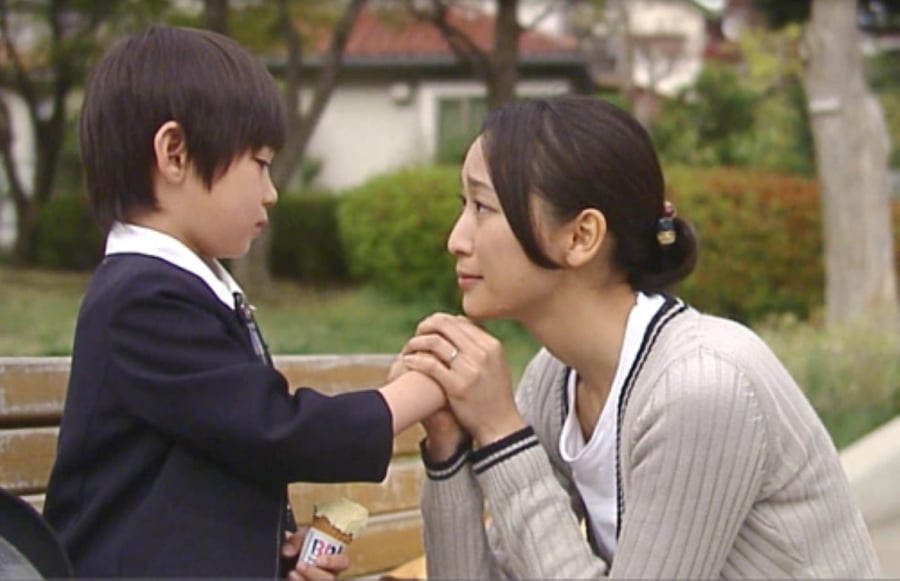Here are 4 rules to teach your children good manners and obedience, just like Japanese mothers:
1. Don’t hesitate to say thank you and sorry to your child
In many countries, we are taught to be polite to adults from a young age. However, in Japan, they are not only polite to the elderly, bosses, superiors, and colleagues, but also to children. Parents don’t hesitate to say things like: Please, thank you, or sorry to their children.
Japanese parents tend to speak to their children very gently and politely. Because they believe that parents are role models for their children to learn from. So if the parents are polite, the children will learn and follow.
In addition, when adults interact with children, they speak to them with respect and equality. This communication style does not only take place in the family, but also in kindergartens and preschools, teachers are also polite to the children.

Japanese children are always taught to say thank you and sorry. (Illustrative photo)
2. Encourage your child to actively greet others
Greetings are a part of Japanese life. Greetings are often incorporated into everyday life before children learn to speak. Therefore, children develop a need to receive and greet others proactively.
In Japanese society, people who do not greet others are considered rude. This can affect your initial impression and evaluation at a new company.
To put it simply, in a Japanese company, a member who does not greet others may be rated lower than a member with less ability. This shows how much Japanese people value greetings.
3. Cultivate Self-reliance in Children
The independence and self-reliance of Japanese children are mostly developed from their kindergarten days.
From the age of 3, Japanese children learn to do what they can without relying on others. When they go to school, they prepare their own school bags, drinks, pack lunch boxes, and manage their belongings…
Parents and teachers only silently protect and remind children. No matter how long it takes, they patiently wait for their children to do it without helping. Such love and protection is the key to cultivate self-reliance in children.
Every child must leave their parents and live independently at a certain age. Perhaps Japanese mothers realized this fact early on, and have cultivated independence in their children from a young age. The habits formed from kindergarten help children adapt and integrate more easily when they enter elementary school.
4. Prioritize the interests of the group
The Japanese attach great importance to collective living. From a young age, Japanese parents teach their children not to cause trouble, and to prioritize the interests of the group under all conditions. And self-discipline and independence cultivated from a young age are coincidentally reflected in collective living.
Club activities at school are the best opportunity for individuals to learn how to socialize and work together as a team. According to the advanced education system, club activities can affect children’s learning. So many parents don’t want their children to spend too much time on group activities.
Any individual who takes a leave, is late, or leaves early will affect the progress of the group, so everyone will do their best to cooperate. The Japanese concept of prioritizing the interests of the group is cultivated from the moment children enter school.





































